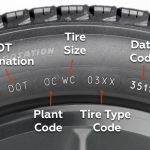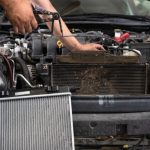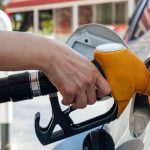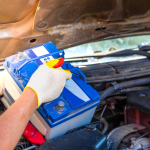In today’s world, the importance of fuel efficiency has never been greater. With fluctuating fuel prices and increasing environmental concerns, every driver wants to know how to make their car go the extra mile without breaking the bank. But maximizing fuel efficiency isn’t just about saving money at the pump—it’s also about reducing your carbon footprint and helping the planet. Fortunately, with a few simple habits and smart vehicle maintenance, you can significantly improve your car’s efficiency, save on fuel costs, and do your part for the environment.
In this article, we’ll explore what fuel efficiency means, why it matters, and how you can maximize your vehicle’s fuel economy without making drastic changes to your driving habits or lifestyle.
Understanding Fuel Efficiency

Fuel efficiency refers to how far a vehicle can travel using a specific amount of fuel, typically measured in miles per gallon (MPG) or liters per kilometer (L/100km). A car with high fuel efficiency will travel farther on less fuel, while a vehicle with poor efficiency will require more fuel to cover the same distance. The goal of maximizing fuel efficiency is to minimize fuel consumption while still getting the most out of your vehicle.
While some factors affecting fuel efficiency—like the car’s design and engine type—are beyond a driver’s control, many aspects can be managed or improved through careful driving and regular maintenance.
Why Maximizing Fuel Efficiency Matters
Maximizing fuel efficiency is important for several reasons. First and foremost, it saves you money. With gas prices often fluctuating, improving your car’s fuel economy means fewer trips to the pump and lower overall fuel costs. This is especially true for those who drive long distances or frequently.
Beyond financial savings, enhancing fuel mileage also has environmental benefits. Using less fuel means emitting fewer greenhouse gases, which helps reduce your vehicle’s carbon footprint. This is an important consideration as many regions push for stricter emissions standards to combat climate change.
Lastly, cars that are more fuel-efficient tend to experience less wear and tear, meaning they often last longer with fewer mechanical issues, further saving money on repairs and prolonging the life of your vehicle.
Top Tips for Maximizing Fuel Efficiency
1. Drive Smoothly and Consistently
One of the easiest ways to improve fuel mileage is by adopting smooth, consistent driving habits. Abrupt acceleration, hard braking, and rapid lane changes all waste fuel by forcing the engine to work harder. Instead, try to maintain a steady speed and anticipate traffic flow to avoid unnecessary stops and starts. By driving more gently, you can significantly reduce your fuel consumption.
On highways, use cruise control where possible to maintain a constant speed. This minimizes the fluctuations in speed that lead to inefficient fuel use.
2. Reduce Excessive Idling
Leaving your car idling for extended periods is a significant drain on fuel efficiency. Whether waiting for a friend or stuck in traffic, idling burns fuel without moving your vehicle, essentially wasting energy. If you expect to be stopped for more than a minute, consider turning off your engine. Modern cars use very little extra fuel to restart, so shutting off the engine when parked or stopped for a long time is more efficient than leaving it running.
3. Keep Your Tires Properly Inflated
Tire pressure has a direct impact on fuel efficiency. Under-inflated tires create more rolling resistance, making your engine work harder and consume more fuel. On the other hand, properly inflated tires allow the car to glide more smoothly, using less energy to maintain speed.
It’s important to regularly check your tire pressure and ensure it matches the manufacturer’s recommended levels. Most cars come with a tire pressure label inside the driver’s door or in the owner’s manual. Keeping your tires properly inflated can improve fuel efficiency by up to 3%, a simple fix with noticeable savings over time.
4. Lighten the Load
The heavier your car, the more energy it requires to move, which in turn decreases fuel efficiency. While some weight—like passengers and necessary cargo—is unavoidable, unnecessary items stored in your trunk or back seat can increase fuel consumption. Remove heavy, unused objects from your vehicle to lighten the load and enhance efficiency.
Additionally, roof racks and cargo boxes create wind resistance that makes your car less aerodynamic. When not in use, remove them to further improve your vehicle’s performance and fuel economy.
5. Keep Up with Regular Maintenance
A well-maintained vehicle runs more efficiently, while a neglected car can quickly become a gas guzzler. Routine maintenance such as oil changes, air filter replacements, and spark plug checks play a crucial role in maximizing fuel efficiency.
- Oil Changes: Using the correct grade of motor oil recommended by your manufacturer ensures that your engine runs smoothly. Old, dirty oil can cause friction and reduce engine performance, leading to lower fuel efficiency.
- Air Filters: A clean air filter allows your engine to “breathe” more easily, improving fuel combustion and overall performance. A clogged air filter, on the other hand, can reduce air intake and make the engine work harder, wasting fuel.
- Spark Plugs: Worn or faulty spark plugs can cause misfires, reducing your car’s efficiency and leading to poor fuel economy. Replacing old spark plugs at regular intervals ensures that your engine runs as smoothly and efficiently as possible.
6. Optimize Your Use of Air Conditioning
Air conditioning puts extra load on your engine, especially at low speeds, which can reduce fuel efficiency. On hot days, try using your vehicle’s ventilation system or opening windows to cool off instead of immediately cranking up the air conditioning.
At highway speeds, however, it’s often more fuel-efficient to use air conditioning than to drive with the windows down, as open windows increase drag. Striking the right balance between comfort and efficiency is key to optimizing your fuel use.
7. Drive at Optimal Speeds
Driving too fast or too slow can negatively impact fuel efficiency. Generally, cars achieve their best fuel economy when driven between 45-65 mph (or 70-105 km/h). Driving faster than this increases wind resistance, forcing the engine to burn more fuel to maintain speed. Conversely, driving at very low speeds, especially in stop-and-go traffic, can also reduce efficiency.
If you’re looking to maximize fuel economy, consider sticking to speed limits and avoiding aggressive driving.
8. Plan Your Routes and Avoid Traffic
Unnecessary detours, traffic jams, and poorly planned routes can all decrease fuel efficiency. Whenever possible, plan your trips ahead of time to minimize the distance traveled and avoid high-traffic areas. Many modern GPS apps now provide real-time traffic updates and alternative routes that can help you avoid congestion and save fuel.
Combining multiple errands into one trip can also reduce the amount of time you spend on the road, improving fuel economy in the process.
The Long-Term Benefits of Fuel Efficiency
Focusing on fuel efficiency offers both short- and long-term benefits. In the short term, you’ll enjoy lower fuel bills and fewer trips to the gas station. Over time, the reduced wear on your vehicle and engine components can lead to fewer mechanical issues, potentially saving you thousands in repair costs.
Moreover, maximizing fuel efficiency reduces your carbon footprint, contributing to a cleaner and healthier environment. As emissions regulations tighten and the world moves toward more sustainable energy sources, improving fuel economy is one way drivers can make a positive impact.
Fuel Efficiency and Vehicle Choice
If you’re in the market for a new car, fuel efficiency should be a top consideration. Many modern vehicles, particularly hybrids and electric cars, are designed with fuel efficiency in mind. They offer advanced technology that optimizes fuel use and minimizes emissions.
However, even if you’re not in a position to purchase a new car, the tips outlined above can significantly improve the efficiency of your current vehicle. Small changes in your driving habits and routine maintenance can make a big difference in how much fuel your car consumes.
Sustainably Saving with Ease
Maximizing fuel efficiency is about more than just cutting costs—it’s a way of driving smarter, protecting the environment, and extending the life of your vehicle. By adopting simple habits like smooth driving, regular maintenance, and reducing unnecessary weight, you can improve your car’s fuel economy without sacrificing performance or comfort.
In an era where fuel prices and environmental concerns are at the forefront, prioritizing fuel efficiency is a smart choice for both your wallet and the planet. With these tips in hand, you’ll be well on your way to getting the most out of every gallon.










